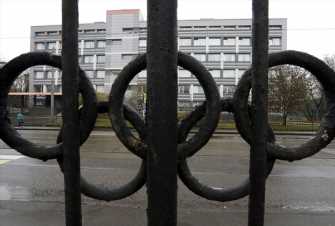World Athletics has voted to end its eight-year ban of the Russian Athletics Federation (RusAF) but the country’s athletes, and those of Belarus, will remain excluded from international competition because of WA’s ongoing separate ban over the invasion of Ukraine, the governing body said on Thursday.
RusAF was banned in late 2015 after the discovery of massive, state-sponsored doping and related cover-ups and a failure to meaningfully address the issue meant that the suspension remained in place.
However, Rune Andersen, head of WA’s Russia Task Force, reported that he was finally satisfied with the “new culture of good governance and zero tolerance for doping throughout the organisation” and WA’s Council voted on Thursday to lift the ban.
“An independent audit team confirms that RusAF has met all the detailed KPIs and other requirements set out in the reinstatement plan,” Andersen told a Zoom news conference.
“I advised Council today that those conditions have now been met.
“RusAF has accepted a detailed set of post reinstatement conditions designed to ensure there is no backsliding from the significant progress.
WA President Sebastian Coe said there were 35 special conditions to be applied for a period of three years with a review at the end of that period.
In recent years, dozens of Russian athletes had been allowed to compete as neutrals if they could show a doping-free background but they too remain unable to compete after the Council voted to maintain the blanket ban on Russian and Belarusian athletes that came into force soon after the invasion of Ukraine a year ago.
“Council approved the recommendation to exclude Russian and Belarusian athletes and officials from all our world athletics series events,” Coe said.
“That is for the foreseeable future because of the invasion and ongoing war in Ukraine.”
Coe said the decision was “very clear with no ambiguity and that the Federation has ‘primacy’ on eligibility.”
This decision follows that last week by the European Athletics Council that Russian and Belarusian athletes should remain banned from its events until the war in Ukraine is ended.
For many years Andersen’s reports from Russia showed little change and became almost a rubber-stamp exercise as Council duly voted to maintain the ban.
However, last November he reported back with a much more positive outlook and, subject to certain conditions, recommended reinstatement.
Andersen said that competitive dope-testing of Russian athletes was at an acceptable level of quantity and quality and that Russia’s anti-doping organisation, RUSADA, had received more whistleblower reports about track and field athletics than any other sport.
“These points may be seen as evidence that cultural change is starting to take root in Russian athletics,” he said.
Andersen warned, however, that he was unsure whether the change in approach would be permanent and recommended the suspension was imposed again in the case of any failure to meet the reinstatement conditions.
Source: Read Full Article

